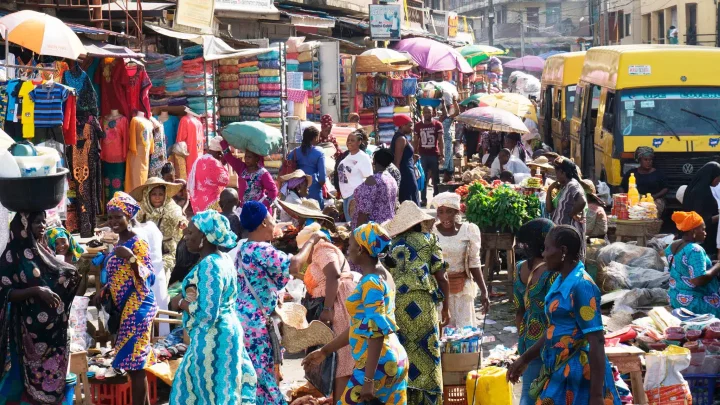The Nigerian Association of Chambers of Commerce, Industry, Mines and Agriculture (NACCIMA) has called on the federal government to urgently adopt bold economic reforms and targeted support programs to prevent a rise in poverty as projected by the World Bank.
On April 25, the World Bank forecasted that poverty in Nigeria could increase by 3.6 percentage points by 2027, despite the country’s wealth in natural resources. The grim projection also includes the Democratic Republic of Congo.
In response, NACCIMA President Dele Oye outlined a 13-point strategy aimed at reversing this trend, urging immediate action through focused stimulus packages, stronger agricultural investment, and reforms to Nigeria’s tax and business environments.
Economic Stimulus: From Words to Impact
Oye, who also chairs the Organised Private Sector of Nigeria (OPS), emphasized that Nigeria’s existing support programs are inadequate and poorly structured. He proposed direct cash transfers, food assistance, and funding for small and medium-sized enterprises (SMEs) as key interventions.
“These systems must be independently monitored and properly evaluated to prevent corruption and ensure meaningful outcomes,” he stressed.
Reviving Agriculture for Food Security and Jobs
Recognizing agriculture as a major livelihood source for Nigerians, Oye advocated for targeted subsidies, low-interest credit, and expanded training programs to help farmers increase productivity and sustain incomes. He also emphasized the urgent need to improve rural infrastructure to connect farmers to markets and reduce post-harvest losses.
Youth Empowerment and the ‘Japa’ Exodus
With youth unemployment and the mass migration trend (commonly called Japa) on the rise, Oye called for youth-focused funding, especially for female entrepreneurs, alongside vocational training and skills development. He encouraged the government to scale up its existing partnership with Germany for vocational education and to work closely with NACCIMA in establishing a nationwide training network.
Fixing the Tax System to Attract Investment
According to Oye, tax reforms are critical to economic recovery. He criticized recent tax expansions and penalties—such as those imposed on free trade zones and international investors—as counterproductive.
“To drive investment and job creation, tax incentives should prioritize businesses operating in underserved areas and employing local talent,” he advised.
He further recommended that the government de-risk high-potential sectors like solid minerals through favorable policies and public-private partnerships, which would unlock private capital and accelerate development.
Safety Nets, Social Awareness, and Infrastructure
Oye also pushed for a broader social safety net, including unemployment benefits and healthcare access, as well as awareness campaigns to inform vulnerable groups about available government support.
“Poverty reduction programs must be transparent, measurable, and continuously improved,” he added, emphasizing the importance of accountability in delivery.
Security: The Cornerstone of Rural Development
He identified insecurity—including terrorism and armed conflict—as a major driver of rural poverty, disrupting farming and economic stability.
“Restoring peace to rural communities is vital for agricultural productivity and investor confidence,” he said.
Seizing AfCFTA Opportunities Through Manufacturing
Oye urged Nigeria to move away from raw material exports and focus on value-added local manufacturing to benefit from the African Continental Free Trade Area (AfCFTA).
He echoed AfDB President Dr. Akinwumi Adesina’s stance that industrialization is key to ending poverty:
“Africa exports raw materials but processes less than 2% locally. Nigeria must lead the charge in changing this.”
Nigeria’s Debt: A Looming Economic Risk
Citing data from the Debt Management Office (DMO), Oye warned that Nigeria’s public debt hit ₦144.67 trillion ($94.23 billion) by the end of 2024—a 48.58% increase from the previous year.
He emphasized the need for at least 7% annual economic growth, as pointed out by Finance Minister Wale Edun, to meaningfully reduce poverty and ease debt pressure.
Conclusion: Urgency in Action
Oye concluded by urging the federal government to pursue a comprehensive approach—one that blends immediate relief with long-term development.
“By acting now, we can shield millions of Nigerians from deepening poverty and chart a sustainable course toward inclusive economic growth,” he said.

